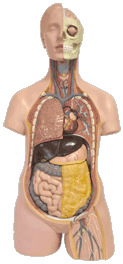At WiseGEEK, we're committed to delivering accurate, trustworthy information. Our expert-authored content is rigorously fact-checked and sourced from credible authorities. Discover how we uphold the highest standards in providing you with reliable knowledge.
What is Executive Functioning Disorder?
Executive functioning disorder is a cognitive impairment where people have difficulty with tasks involving organizing, planning, and regulating their actions. This is not a formal medical diagnosis, but rather a common facet of a number of cognitive disabilities like attention deficit hyperactivity disorder (ADHD) and autism spectrum disorders. Problems with executive function can make it hard for people to complete daily tasks, including activities other people may think of as simple, like remembering to hang up coats or taking out the garbage.
The term “executive function” refers to higher-order cognitive tasks involved with helping people manage and plan mental processes. It involves activities like making plans, developing strategies for completing tasks, abstract thinking, and controlling personal activities. In essence, it could be thought of as the brain's personal assistant, keeping it focused and on task.

In a person with an executive functioning disorder, it can be hard to approach tasks because people do not know where to begin or how to organize themselves to complete them. A student assigned homework, for example, has trouble mapping out a plan of action, such as scheduling a time to read, staying focused on the reading, answering the questions or prompts, and preparing the homework in the format preferred by the teacher. Likewise, someone might have trouble with a task like meal planning; a person with an executive functioning disorder could be hungry but unable to figure out what to eat, what to buy from the store, or how to prepare the meal.
This can be a potentially disabling condition, as people can have difficulty with very important activities, like scheduling an appointment to see a doctor when symptoms of a medical problem develop. Executive functioning disorder often contributes to learning disabilities, as a big part of learning involves the ability to organize and plan. It can also make it hard for people with behavioral problems to address them, as executive functioning is also involved in tasks like exercising self control.
Management of conditions involving executive functioning disorder requires evaluating the patient as a whole and identifying specific issues. Many people benefit from having very carefully planned and regulated schedules and detailed guidelines for activities. Having an aide or assistant may be beneficial for some; in the classroom, for example, a partner can help a student with the successful and independent completion of schoolwork. Others benefit from coaching, where they learn tips and tricks for organizing.
Understanding from friends, family, and partners is also necessary. Executive functioning disorder can interfere with successful and healthy relationships, as people may grow irritated with a person's apparent inability to do even “simple” things. Support from friends and family will help people manage their conditions more effectively.
AS FEATURED ON:
AS FEATURED ON:










Discuss this Article
Post your comments